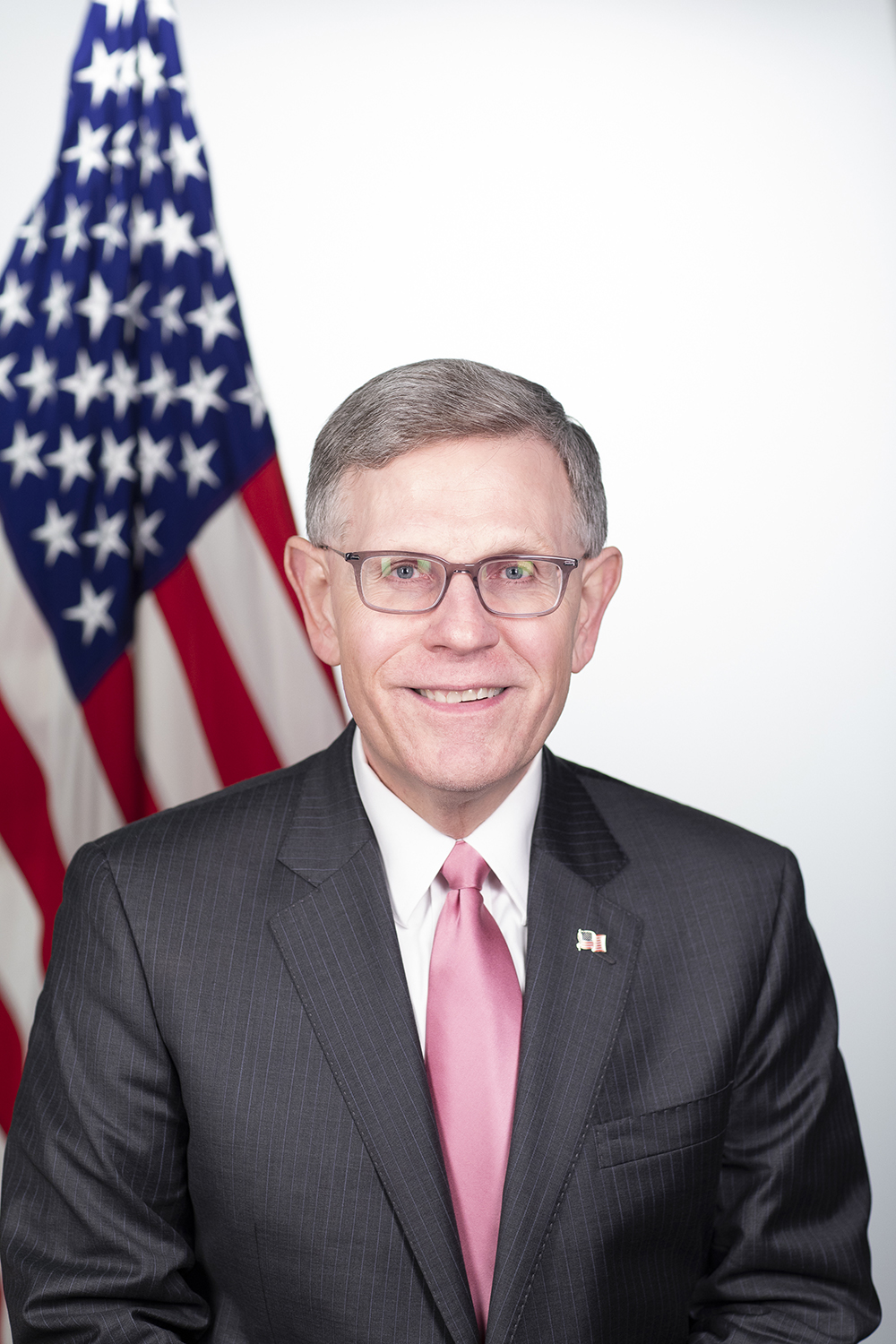Preserving integrity and security in research
White House Science Advisor Kelvin Droegemeier spoke with the Stanford community about efforts at the federal level to ensure integrity, security and equity in research.
The federal government wants to ensure the integrity and security of the American research enterprise, which are key to maintaining American leadership in science and technology.

Kelvin Droegemeier is director of the White House Office of Science and Technology Policy. (Image credit: Keegan Barber)
That’s the message Kelvin Droegemeier, director of the White House Office of Science and Technology Policy (OSTP), brought to Stanford on Wednesday. The event, which was sponsored by the Office of the Vice Provost and Dean of Research, Kathryn Moler, featured a question-and-answer session with Stanford faculty and students on issues facing the scientific community including security and openness in science, integrity in research and equity in the research environment.
Droegemeier, who co-chairs a newly created interagency Joint Committee on the Research Environment, talked about the group’s focus on ensuring integrity in research. “The real focus is to develop policy recommendations that assure that we remain the world leader in science and technology,” he said. “The thing that makes this work so well is our American values, the values of being open and free to discover.”
He added that if women, people of color or LGBT people don’t feel welcome in research, that doesn’t uphold the American values that have made us a leader in this space.
Droegemeier shares the leadership of the joint committee with the directors of the National Institutes of Health, the National Science Foundation and the National Institute of Standards and Technology, and the undersecretary for science at the Department of Energy. That group convened four subcommittees focused on research administrative workload; rigor and integrity in research; safe, inclusive and equitable research settings; and open research environments balanced with security.
In his opening remarks, Stanford President Marc Tessier-Lavigne spoke to the importance of the government’s role in academic research. “Even with the strong research enterprise in the United States, we also need collaboration with researchers around the globe, in order to accelerate the solutions and discoveries,” Tessier-Lavigne said. “We do understand concerns about the potential misappropriation of intellectual property by third parties, including foreign governments and how that could jeopardize national and economic security. But we believe that we can and must attend to those concerns in a manner that does not impede our research and collaboration.”
One area of focus for Droegemeier is the need to balance the burden of regulation with the benefits. He pointed to a series of surveys, conducted over the past two decades, that found unnecessary or duplicative administrative tasks take faculty away from their research. “Think about the intellectual capacity we are wasting by having our faculty spend time on things that have nothing to do with research,” he said. His office is looking at ways of reducing the administrative workload on researchers.
During the Q&A session, several faculty members brought up issues relating to security and integrity in research, including John Etchemendy, co-director of the Stanford Institute for Human-Centered Artificial Intelligence, who cautioned Droegemeier that policies can have unintended consequences. For example, a concern over influence by particular countries could lead to people from those countries being discriminated against in American research environments.
Droegemeier responded that it’s important for the community to understand the very real benefits of international collaboration.
Much of the joint committee’s work won’t look much different than what faculty were used to, but would be more coordinated across federal agencies. It was noted that there are already compliance requirements in place. The subcommittee is mostly trying to clarify and coordinate the requirements.
This conversation about security follows on recent work by two Stanford committees tasked with addressing federal concerns over foreign influence in research. Their recommendations are available on the DoResearch website.
In addition to issues of security, Droegemeier addressed questions about the incentive structures in academic research that might underlie cases of misconduct rather than a fundamental lack of integrity. Pressure to publish in high-tier journals or gain tenure status, for example, could lead scientists to cut corners.
The subcommittees of the joint committee are discussing ways of adjusting incentive structures. As one example, they are trying to elevate the value of publishing studies reproducing other research, or reassessing the value of datasets that allow multiple additional publications.
In response to Droegemeier’s comments on equity in the workplace, Miriam Goodman, professor of molecular and cellular physiology, asked whether sexual harassment should be considered a form of research misconduct, notably if the harassment prevents a researcher from accessing equipment or carrying out promising avenues of research. “Those things have an impact on who can perform what research,” she said.
Droegemeier said they hadn’t made a decision on the question, although the larger question of preventing harassment and discrimination is one they are actively pursuing. Droegemeier also made the point that more diversity in leadership could lead to changes in how issues of diversity and inclusion are handled.
Some of the final questions came from undergraduate and graduate students curious about how policies being made today might affect them in the future.
Droegemeier agreed that the policies they put in place today – particularly regarding equity – might require a culture change for the older generation, but could be advanced by younger scientists.
Droegemeier encouraged students to be involved in opportunities to influence policy and the direction of research.
